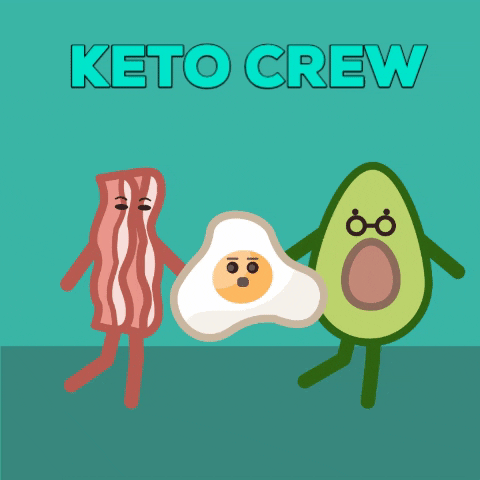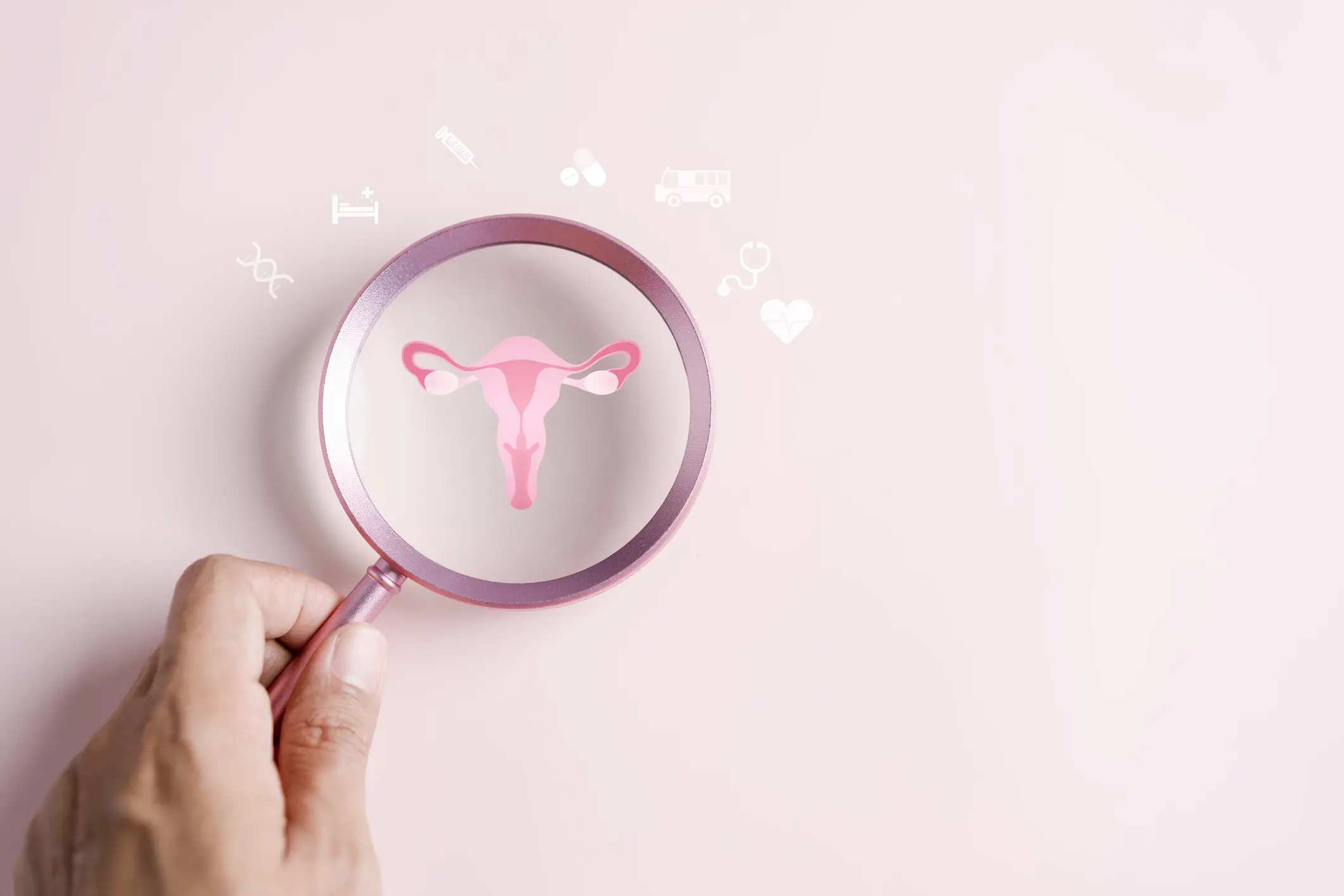
Published on Jul 03, 2023
Last modified on Apr 09, 2024
Is Keto Safe & Effective For Menopause?
5 min read
Weight gain — with that stubborn belly fat! — is one of the most common symptoms of menopause. We hear it all the time: I haven’t changed my eating or exercise habits! What’s happening?!
There’s no shortage of dietary advice, exercise fads, supplements, and medications out there that supposedly help, but not all have hard science proving their safety and efficacy for perimenopausal, menopausal, and postmenopausal women.
Today, we’re breaking down what the science says (and doesn’t say) about the oh-so-trendy keto diet.
What is the keto diet?
The short answer: a low-carb, high-fat, high-protein way of eating.
The longer answer:
The ketogenic diet relies on eating mostly fat (at least 55-60%) and fewer carbs (<10 grams), which means lots of olive oil, fatty fish, avocados, and nuts. While those are certainly all healthy, beneficial foods, keto can skew heavily towards animal proteins, including meat, cream/dairy, and processed fats which, long-term, aren’t great for us.
By limiting carb intake, our body will switch over to ketosis, which means it turns to burning fat stores for fuel.
Why do we gain weight during the menopause transition?
Previously, it was thought that declining estrogen levels were the main culprit in menopausal weight gain, which can start during perimenopause. However, over the past few years, updated research has shown that follicle-stimulating hormone (FSH) — which is usually just thought of as a reproductive hormone causing eggs to develop in the ovaries — may play a bigger role in metabolism than scientists originally thought. Rising FSH levels, which signal hormonal change in menopause, may themselves contribute to weight gain.
Outside of fluctuating hormone levels, other factors contributing to menopausal weight gain include age, genetics, and increased insulin resistance.
READ MORE: Yes, “Menopause Belly” is Normal. Here’s What You Can Do About It.
Is the keto diet effective for weight loss?
The high-fat diet can be very effective for initial weight loss — as well as energy and clarity.
There are several potential reasons why:
Keto & appetite
Why menopause affects appetite all comes down to…surprise, surprise…hormonal imbalances.
- Increased ghrelin, aka our hunger hormone
- Decreased leptin, which is what promotes feelings of fullness
- Increased cortisol, the stress hormone that, in excess, can cause overeating
- Decreased estrogen and estradiol which, like leptin, typically help regulate our appetite, metabolism, and body weight
Ketogenic diets may help prevent an increase in appetite, which can help curb cravings. That said, the primary clinical trial on the topic — conducted in 2019 with 95 individuals with obesity, 55 of whom were women — included a wide age range of 18 – 65 years old. So not all participants were menopausal.
Keto & insulin levels
Because of hormonal fluctuations associated with menopause, women are at increased risk for becoming insulin resistant. This means it’s harder for our body’s cells to take in glucose (aka blood sugar, from the breakdown of carbs and protein) with the same or even higher levels of insulin, a process that results in extra body fat storage. This also causes us to feel tired and hungry. It’s a cascade of physiological events that gets stuck in repeat, leading to weight gain.
Some studies suggest that a low carbohydrate diet like keto can help with insulin sensitivity.
READ MORE: Protein During Menopause: How Much Do We Really Need?
However, its effect on other menopause symptoms is unclear
We don’t know, for example, whether it helps or hurts the balance of estrogen and progesterone during perimenopause into menopause (our two reproductive hormones that are behind many of the top menopause symptoms…think hot flashes/night sweats, mood swings, vaginal dryness, brain fog, etc).
Potential risks of the keto diet
- If you’re not careful, it can be easy to eat too many processed meats (and not enough plant-based foods), with studies finding that keto diets increase LDL cholesterol (that’s the “bad” kind that contributes to heart disease).
- You may experience keto flu, which describes side effects (nausea, constipation, headaches, fatigue) that appear when our bodies are initially adjusting to this high-fat, low-carb diet.
- The keto diet may increase the chances of developing kidney stones.
- Ketosis has been associated with a loss of bone density, which is problematic during menopause when our risk of osteoporosis is higher.
Keto vs intermittent fasting
Intermittent fasting (or IF, for short) is a technical term for eating all of your meals in a more concentrated period of time, so you fast for a longer duration from the evening to the morning. With this method, you’re not making up for the food missed during the fasting window, meaning you not only eat in a shorter window of time, you also reduce your intake of calories.
Early evidence indicates that this pattern of eating may provide benefits when it comes to weight management by increasing insulin sensitivity and helping balance blood sugar.
In order to see results, a 16:8 schedule is recommended, which means 16 hours of consecutive fasting during a 24-hour period. However, it can help to start with a 12:12 schedule, when you fast for 12 hours, and work your way up to 16:8. Regimens that involve fasting for more than 1 day per week should be done under the supervision of a physician or registered women’s health dietitian/nutritionist.
READ MORE: The 101 On Intermittent Fasting During Menopause
The bottom line
Keto is very difficult to sustain, and most of us who do aren’t eating sufficient fiber and plant-based foods.
If you DO consider keto, create a meal plan that includes lots of vegetables to make sure you’re getting enough fiber, and limit processed meats. Also, for many, dairy can cause issues so if you’re feeling bloated or gassy, skip the dairy and see if it improves.
A note on the Mediterranean diet
While there isn’t one best diet for everyone, the Mediterranean diet has rightly earned a lot of hype for its positive effects on everything from mental health to weight loss. It’s:
- Low in saturated fats and animal proteins
- Rich in antioxidants, fiber, and healthy fats
- Anti-inflammatory
- Low-carb
- Low-sugar
…not to mention more accessible than something like the keto diet.
And because it kicks most refined and concentrated sugars to the curb and focuses instead of non-starchy veggies, beans, fruits, and whole grains, it’s considered low-glycemic — meaning it won’t dramatically spike our blood sugar. Because remember, increased glucose leads to increased insulin, which leads to weight gain.
READ MORE: Elektra’s Guide to Nutrition During the Menopause Transition
A note on body neutrality
We know it’s hard to accept, but our bodies are meant to evolve. And it’s important to treat your body and self with the kindness and love it deserves…which brings us to body neutrality.
Now you may be familiar with the Body Positivity movement, which encourages people to accept and celebrate all aspects of their appearance. While we appreciate that idea in theory, let’s be real: loving every part of your body can be incredibly difficult, especially if you’re experiencing menopause symptoms. Instead of focusing on appearance or striving for an unwaveringly positive self-image, body neutrality challenges us to recognize and respect how our bodies are supporting us in the present. Learn more about this incredibly powerful way of “reframing the change.”


